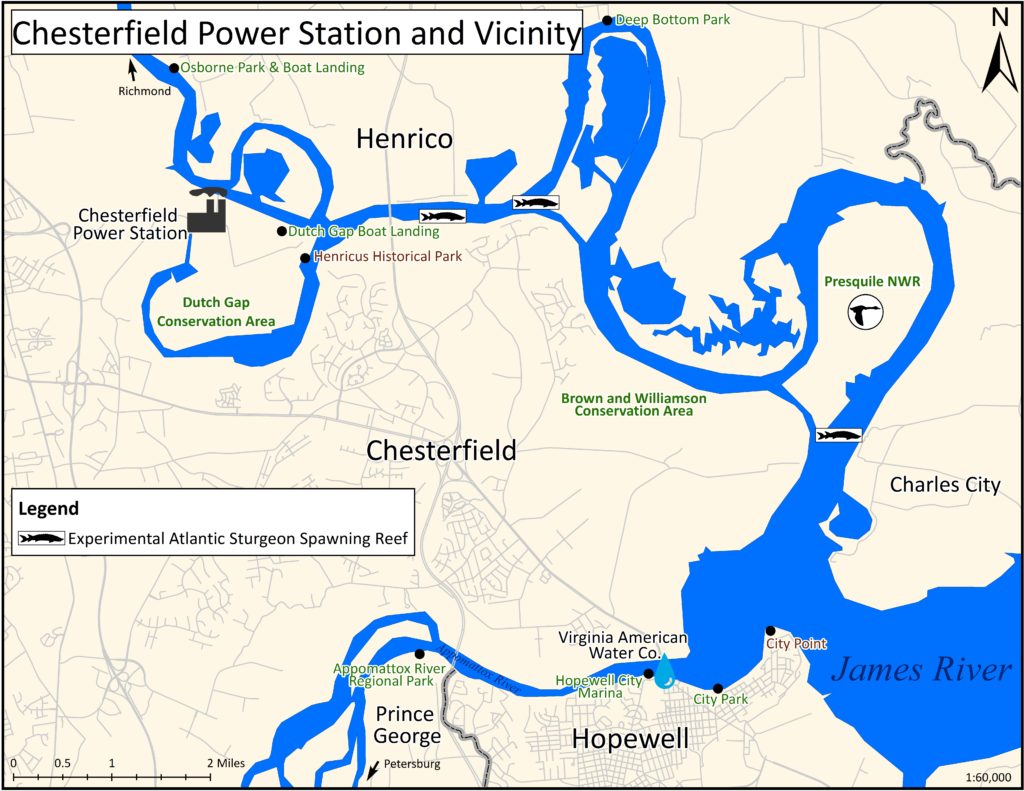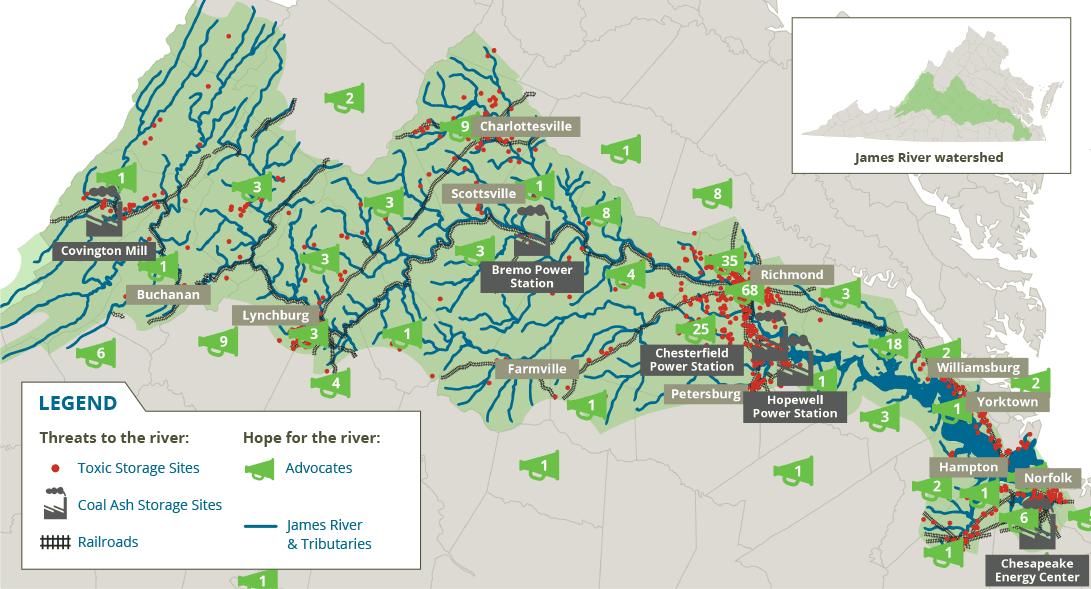Use Your Voice to Protect the James River
Together we can protect
Virginia’s greatest asset:
America’s Founding River
The James River is a River at Risk. Now is the time to begin a conversation on how to protect our waterways and our citizens from the threats posed by the storage and transport of hazardous materials.
Let’s do our part to protect the James River
Many aspects of our world today threaten the safety and health of the James River. We want to protect this incredible feature for future generations to continue using the James for drinking water and recreation.
The James River is at risk from 1,100 toxic storage sites, up to 5 billion gallons of coal ash and millions of gallons of crude oil traveling along the shore each week. We must do a better job protecting this natural resource.
Help us reach
3,400 advocates
which is ten advocates for every river mile.
………………………………………….
Current Advocates
A Valuable Natural Resource
This valuable natural resource is a critical part of our history, daily lives, and the legacy we leave for future generations. These are very important reasons for why we are uniting to protect the James.
Rich History
Source of drinking water
Wildlife Habitat
Place for recreation
Community Identifier
Legacy for future generations
Updates on Dominion Coal Ash Pond Dewatering
We are working to protect the James River. Here is the latest information on this issue.
We are pleased that the process has begun to close these coal ash ponds which DEQ has acknowledged have environmental concerns. However, we must ensure that the process to close the ponds is protective of the river from start to finish – especially in Chesterfield, where endangered Atlantic Sturgeon are found in the river and the power station sits right next to Henricus, one of the earliest English settlements in the New World.

The PUBLIC COMMENT PERIOD was open from June 6, 2016 to July 21, 2016.
PUBLIC HEARING: Thomas Dale High School – West Campus, 3900 West Hundred Road, Chester, VA 23831 on July 6, 2016, at 7:00 p.m. Comments made during the public hearing will be a part of the official public record. The State Water Control Board will accept written and oral comments at the public hearing. To make a statement at a public hearing, write your name on a sign-up sheet available before the hearing. You may sign up only for yourself. The time allowed for each statement is set by the hearing officer.
PUBLIC HEARING INFORMATIONAL BRIEFING: Staff will be available to answer questions during an informational briefing held at the Thomas Dale High School – West Campus in Chester, Virginia on July 6, 2016 from 6:00 p.m. to 6:45 p.m. prior to the public hearing. Questions and comments made during this informational briefing will not be part of the official public record.
Just a few months ago, strong public involvement was critical to ensuring that discharges at the Bremo Power Station are treated to the maximum extent practicable and are protective of human health and aquatic life. Please join us once again as we engage in this process and work towards stronger protections for the James River at the Chesterfield Power Station. Help us spread the word and grow our Action Network – share this message with your friends. We will be sure to share more detailed information as this process unfolds.
Based on a review by an independent engineer, we expect that the actual pollution levels will be even lower and comparable to the lower limits set in North Carolina permits.
Importantly, Dominion must submit a report for the enhanced treatment to DEQ for approval, which will make the enhanced treatment enforceable under the permit. Dominion has also committed to conducting fish tissue sampling for two years upstream and downstream of the discharge.
Strong public involvement was critical to achieving this success, and we want everyone to continue to stay engaged through the entire process. This is only the first step in permanent closure of the coal ash ponds.
For more information:
- Bremo Settlement Summary Points
- Concept Engineering Report
- James River Association Plans Court Challenge to Protect the James River from Coal Ash Pollution
- James River Association Objects to Draft Permit to Dewater Coal Ash Ponds at Dominion’s Bremo Power Station
- James River Association to Express Concerns to State Water Control Board
- Approved Permit to Dewater Coal Ash Ponds Poses Threat to the James River
- Final Comments on Draft VPDES Permit No. VA0004138, Bremo Power Station
- Letter to State Water Control Board regarding Bremo Power Station
- Threats facing the James River
What’s at Risk

How you can help protect the James River
Become an advocate for the James and join the voices of other Virginians to protect one our most valued natural resources. It’s easy to be an effective advocate. Within a few clicks, you can send an email, letter, or make a call to your elected officials.
